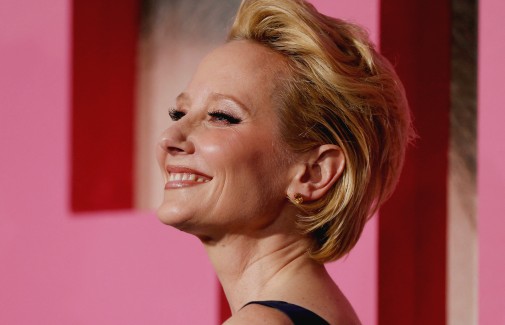
One week ago, on August 5th, Anne Heche crashed her car into a house in Mar Vista, Los Angeles, near her home. The collision was dramatic, causing a fire that took an hour to control, and, though the occupants of the house didn't suffer injuries, Heche was taken to the hospital with severe injuries. At first, it was announced the actress was in critical condition, then a coma, severe brain damage, and today we got the news that Heche is legally dead. She was 53.
This is a horrifying end to what has been a biography marked by polemic and controversy, mental illness, and other difficult situations blown out of their private dimensions into tabloid fodder. Anne Heche had a complicated life - that's undeniable. Yet, to let scandal shine brighter than artistry feels wrong, an ultimate betrayal. In other words, as we mourn this fallen star, let's remember she deserved better than the callousness with which she was often discussed. Beyond personal trials, she was a fascinating screen presence...
Born Anne Celeste Heche on May 25th, 1969, in Aurora, Ohio, the future actress was the youngest of five children. Her youth was troubled, involving several moves, including a stay within an Amish community. Then, at age 13, the death of her father from AIDS-related complications. During this time, due to a precarious financial situation, Heche started working at a dinner theater, but even that couldn't keep the family afloat. At one point, they lived in a single bedroom made available by another family at their local church in Ocean City, New Jersey. Unfortunately, the tragedy didn't stop there. Three months after the patriarch's demise, Heche also lost her older brother, Nathan, in a car crash.
After this, the remaining family moved to Chicago, where a talent agent spotted Heche and got her an audition for the daytime soap As the World Turns. She was just 16 at the time and was forbidden from accepting a job offer. Her mother wanted her to finish high school first. That being said, her motives might have been more connected to religious beliefs rather than a concern for her daughter's education. At least, that's what one comes to understand through Heche's retellings of her younger life. By 1987, she graduated and, against her mother's wishes, accepted a dual role in NBC's hit soap opera Another World. She played a set of twins - Vicky and Marley Hudson, one good, the other bad.
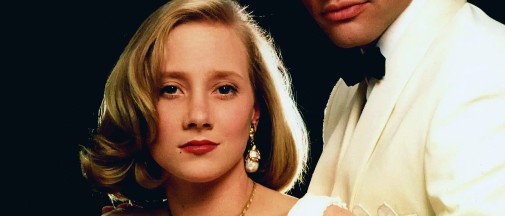
As the 90s dawned, Anne Heche became one of American TV's most promising actresses. After receiving a first Daytime Emmy nomination for Another World in 1989, she won the prize in 1991. That same year, she made her Primetime debut in an episode of Murphy Brown. Her first TV movie, O Pioneers!, came shortly after, and, finally, her big screen debut in 1993's An Ambush of Ghost, winner of a Cinematography award at the Sundance Film Festival. As the decade went on, theatrical roles became more substantial. Moreover, her projects showcased a great malleability, a power to adapt to any genre thrown her way, from seedy erotic thrillers to prestigious stories about important subjects.
Though she got some of her best reviews yet for Nicole Holofcener's 1996 Walking and Talking, the following year proved to be Anne Heche's cinematic breakthrough.
In 1997 alone, she appeared in four theatrically-released films, plus a made-for-TV movie, ranging in approach tremendously. On the one hand, you have the horror shlock of I Know What You Did Last Summer and Volcano's disaster movie stylings. Conversely, you have the Oscar-nominated wonders of Wag the Dog and Donnie Brasco. If the former showed Heche's promise as a comedic performer who could go toe-to-toe with Dustin Hoffman and Robert De Niro, the latter showed her ability with subtle drama. Playing an undercover agent's concerned wife, Heche insinuates complexities within the archetypical nature of what could have been a forgettable character in the hands of a lesser actor. She won the Best Supporting Actress prize from NBR for both films.
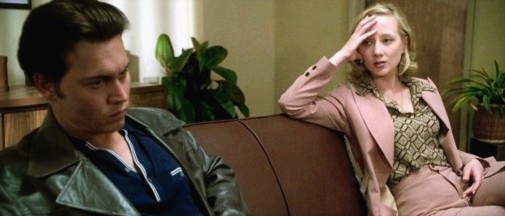
Still that year, Heche made an uncredited guest appearance on Ellen shortly before she and DeGeneres made their romantic relationship public. This announcement coincided with the actress's transition from supporting roles to protagonists in her film career and probably hindered her growth into a bigger star. At least, that's what Heche believed, articulating her point in many interviews across the years. It is undeniable that the media's reaction to her acting radically changed in 1998, with some projects underwhelming and her profile as a celebrity becoming more talked about than her artistic prowess. It's no coincidence that she received her only Razzie nomination around this time.
I first became familiar with Heche through her television work in the 2000s, watching the actress in shows like Ally McBeal, Everwood, Nip/Tuck, and Men in Trees. While these often weren't the best showcases for her talents, I was thoroughly captivated by the actress' odd intensity. Even in what were supposed to be bubbly diversions, there was a neurotic edge to what Heche brought to the screen, a touch of willful abrasion that could alienate some but enchanted me. I mention this because the likely first film I saw her in was Gus Van Sant's much-maligned Psycho remake from 1998. For some unknown reason, that movie was in heavy rotation on one of the TV channels we had in my house.
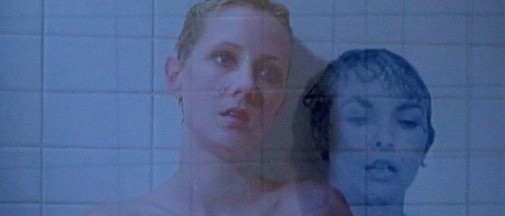
Playing Marion Crane in this shot-for-shot recreation, Heche somehow found a perfect vessel for her idiosyncrasies, making the role her own while fitting into the mimetic exercise her director intended. It's a paradoxical phenomenon of finding specificity in the act of copying, the effort of imitation shining a light on dissimilarities. Overall, I'm a Psycho '98 defender because, in a way, the whole film works like Heche's follow-up to Janet Leigh, creating an experience of cinephile hyper-awareness. Every choice of form and performance is put on the spot, naked and vulnerable, practically begging for the viewers' dissecting ravage. And that's the thing – even as her opportunities dwindled, Anne Heche was consistently attracted to exciting projects.
With a new decade came a publicized breakup and the first of multiple mental health crises that attracted insensitive reporting like a carcass attracts vultures. Still, despite it all, Heche continued to work constantly, focusing a lot of her attention on independent cinema and even some forays into directing with If These Walls Could Talk 2 and On the Edge. In 2004, she should have had another breakthrough year like 1997, but the stars weren't as perfectly aligned anymore. Still, Heche got great praise for her performance as a drug-addicted mother in Gracie's Choice, a Lifetime TV movie that earned her first and only Primetime Emmy nomination. She should have also secured an Oscar nomination that year.
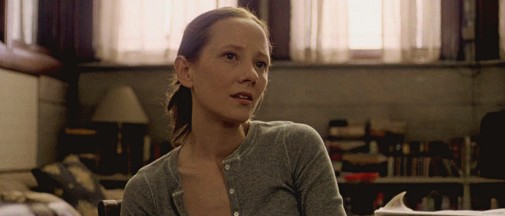
Nowadays, Jonathan Glazer's Birth tends to be held highly by critics and cinephiles, but it wasn't always that way. Just look at that Rotten Tomatoes score, primarily drawn from 2004 reviews, to get an idea of how much this masterpiece was hated once upon a time. This sad case of underrated cinematic excellence extended to the cast's incredible work, including Anne Heche's flinty take on the key to the film's mystery. Despite that description, she's not an exposition machine or even a nice little Rosetta Stone in human form. Instead, she's fiercely nasty, thorny to the max, and disruptive as all hell. She does this while keeping the characterization internal, refusing to be flattened into a simple answer to the plot's questions.
When we start celebrating 2004 before the season's last Supporting Actress Smackdown, don't forget Heche's Oscar-worthy achievement.
Alas, such golden promises didn't materialize as they should. Through the next two decades, Heche kept working, mostly in supporting roles with the occasional lead like her stint in Catfight, costarring Sandra Oh. You needn't look too deep until you discover fantastic performances in this period of growing obscurity. More importantly, the thespian's willingness to challenge herself remained firm to the bitter end, even as Hollywood turned their back on her. This resilience is still apparent now, as one looks at her IMDB page and finds two unreleased completed movies and five other projects in post-production. Though she's no longer with us, Anne Heche shall continue to bless our screens with new material for a bit longer.
Furthermore, she shall never be forgotten, for her sharpness will remain cutting, preserved in cinema and television, destabilizing ensembles with visions of complicated womanhood and challenging audiences everywhere. Anne Heche was one of a kind and will be sorely missed.
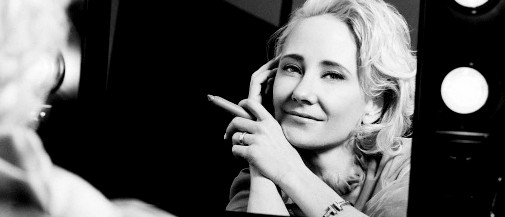
In a gesture of eulogizing celebration, please share your favorite Anne Heche performances in the comments.